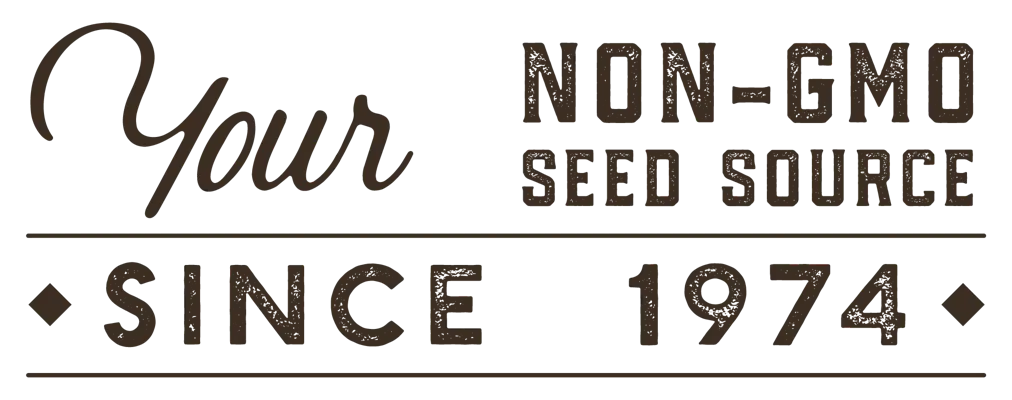Download Free Vegetable Growing Guide PDF
Growing Rutgers Tomatoes in the Vegetable Garden
Begin indoors about 6-8 weeks before the last expected frost. Sow 2-3 Rutgers tomato seeds about .25 inches deep in each cell of a seed starting tray filled with fertile, well-drained soil, ensuring the pH hovers between 6.0 and 6.8. Keep the soil moist but not waterlogged, and place the tray in a warm spot to encourage germination, which typically occurs within 5-14 days. Once your seedlings have emerged and grown strong enough, transplant the best ones into their own pots, giving them room to thrive.
Before your tomatoes can enjoy the full embrace of the sun, they need to get used to the outdoor environment. This process, known as hardening off, involves gradually introducing your plants to outdoor conditions over a week or so. Start by placing them outside in a sheltered spot for a few hours each day, gradually increasing their exposure to direct sunlight and outdoor temperatures.
Rutgers tomatoes crave the sun, requiring at least 8 hours of direct light each day to produce the best fruit. Choose a sunny spot in your garden or on your patio that meets this need. When transplanting them into the garden, space your plants 18-24 inches apart, allowing for adequate air circulation, which is vital for preventing disease.
These tomatoes thrive in moist, fertile, compost-enriched, well-drained soil. Consistent watering prevents common issues like cracking and blossom end rot. Aim to keep the soil evenly moist, especially as the fruits begin to develop.
Rutgers tomatoes are hardy, but like all tomatoes, they have their vulnerabilities. Watch for signs of blight, aphids, flea beetles, and the dreaded tomato hornworm. Regular inspections and prompt action can keep these pests and diseases at bay, ensuring a healthy crop.
Harvesting Rutgers Tomatoes
Your patience and care will be rewarded after 75-80 days when the Rutgers tomatoes reach maturity. Harvest them when they’re brightly colored and slightly soft to the touch. Whether you’re savoring them fresh off the vine, in salads, or as part of a sumptuous sauce, the fruits of your labor will be unmistakably delicious.
About Rutgers Tomato Garden Seeds
Arguably one of the most significant tomatoes in American agriculture, Rutgers tomato seeds were the preeminent crop of commercial farming before advanced industrialization of the 20th century. Rutgers was first developed in 1934 by Rutgers University in conjunction with Campbell's Soup to provide a superior, uniquely American tomato seed for the public.
The Rutgers tomato, a determinate variety, is a true gem in the garden. Unlike its indeterminate siblings that continuously grow and bear fruit throughout the season, determinate tomatoes like Rutgers grow to a fixed height and produce a single, glorious flush of fruit. This characteristic makes them especially suitable for gardeners with limited space, who prefer to can large amounts at a time, or those who appreciate the simplicity of minimal staking.
While the Rutgers tomato heirloom seed variety was originally released by the New Jersey Agricultural Experiment Station (NJAES) in 1934 as a cultivar developed to thrive in New Jersey, it can be grown in all USDA hardiness zones as an annual during the frost-free growing season. Like most tomatoes, Rutgers heirloom tomato seeds thrive in slightly acidic to neutral soil that drains well. The Rutgers tomato variety is resistant to Verticillium wilt (V), Fusarium wilt (F), and Alternaria stem canker (A).
The tomato is the quintessential staple of summer gardening and arguably offers the most seed diversity among all seasonal fruits. Available in every possible color, shape, and size, tomato is a high-heat and full sun favorite that thrives from container and patio gardening. Along with cucumber and summer squash, the tomato plant is one of the season's most productive, hardy, and heavy-fruiting crops.
Offering firm, red tomatoes with a mild taste and weight between 6 and 8 oz., the Rutgers tomato variety is an excellent slicer for sandwiches and burgers. The determinate growth habit makes it easy to grow Rutgers tomatoes in containers and gardens alike.
Cover crops can significantly enhance tomato soil structure and fertility. They add organic matter to the soil as they decompose, which improves soil texture, water retention, and aeration. This creates a better environment for tomato roots to grow.
The Rutgers tomato once accounted for 70 percent of the processed tomatoes in the United States.
The Rutgers tomato is known to do well in the cool climates of the upper East Coast. However, their summer daytime temps are higher/warmer than the Pacific Northwest (PNW). Therefore this tomato is not recommended in the PNW. It does extremely well in the South and is mentioned in old catalogs many times as being grown in Texas.
Tips From Our Gardeners
"If you’re looking for a tried and true tomato variety, Rutgers is a great option for southern and eastern gardeners. It won’t let you down if you give it the right conditions."
 |
- Lara Wadsworth, True Leaf Market Writer
|
Other Resources
Rutgers Tomato Seeds Per Package:
- 250 mg packet - Approximately 88 Seeds
- .25 oz - Approximately 2,500 Seeds
- 1 oz - Approximately 10,000 Seeds
- 4 oz - Approximately 40,000 Seeds
Non-GMO Rutgers Tomato seeds are available for Fast Free Shipping on qualifying orders.




















